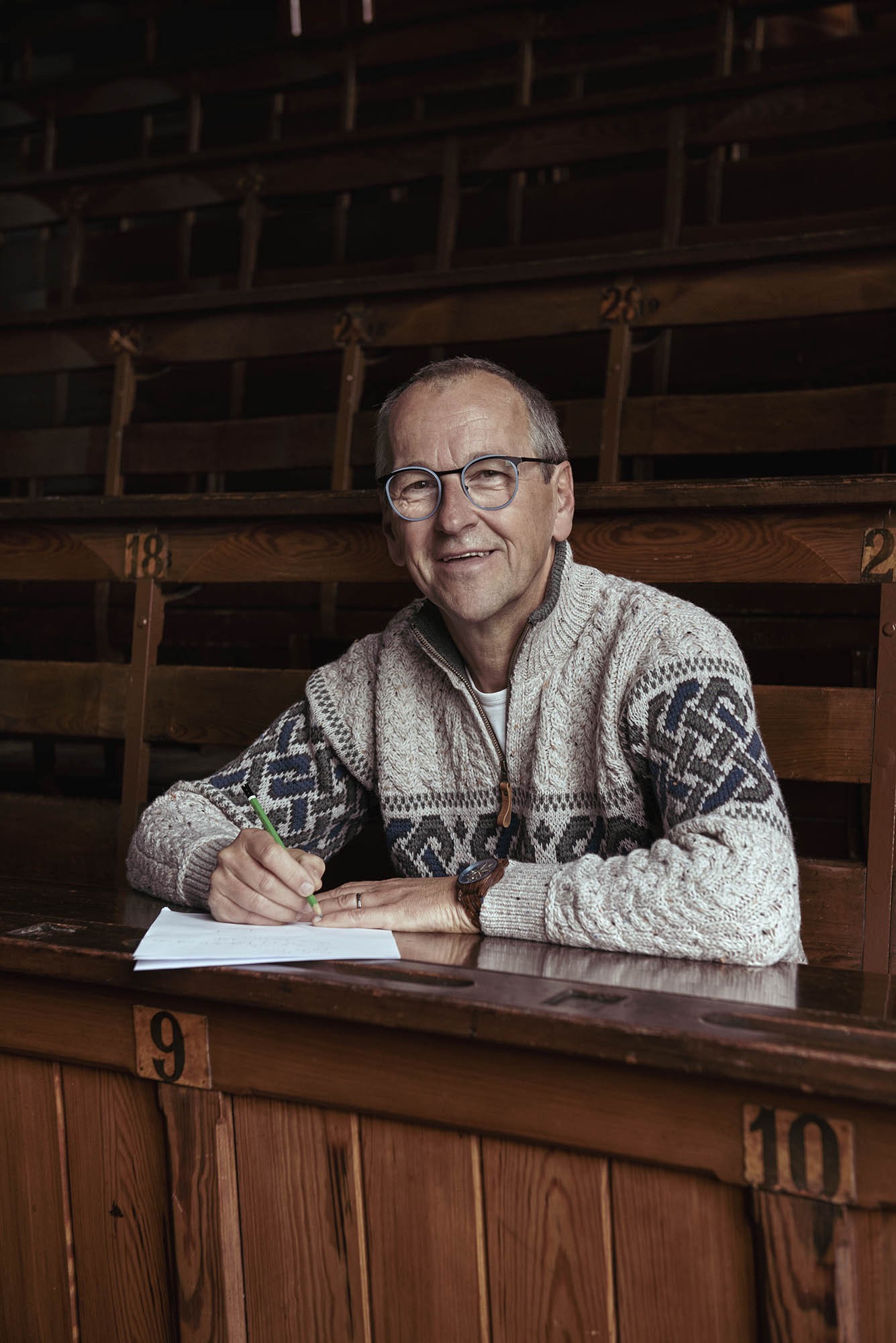Geert Cappelaere is a children’s rights expert known primarily for his role at UNICEF, the United Nations’ children’s rights organisation. For a while he was the regional director for the Middle East and North Africa, and was subsequently appointed the European director of UNICEF. In that role he frequently raised the alarm about the desperate situation of children in conflict areas such as Syria and Gaza.
Now that he has retired, he has written a letter to his 18-year-old self. So what message does he have for young Geert as he is about to embark on a master’s degree in Educational Sciences at Ghent University?
Dear Geert,
An exciting period lies ahead. With your years at Poperinge community college now behind you, you have to make a choice: what comes next? You’ll be attending Ghent University, that much is obvious, but you haven’t quite decided yet what subject you wish to study. The only thing you do know is that you want to put an end to injustice. You’ve felt that way from a very early age and that will never change.
Let me lift a tip of the veil: you’ll choose educational sciences because it dovetails with your social commitment. I’m not going to mince words: it won’t be easy. Your first year in particular will be very trying. Of the thirteen subjects you’ll have to resit nine. It may seem an impossible task but you’ll take up the gauntlet and... succeed.

Perhaps what your high school history teacher said played a part in that. He didn’t believe you’d make it and even burst into laughter when he heard you wanted to go to uni. That struck a chord. Even now, 45 years on, it still pops into your mind on occasion. Believe me, it will motivate you.
Fortunately the next years will be somewhat easier. You won’t have to resit any more exams. You found your feet and the subjects became increasingly interesting. The encounters - and especially those during the last years of your studies - you won’t easily forget. To this day, you keep in touch with many of your fellow alumni.
After your studies the ball really starts rolling. Your first job is at UGent as a doctoral researcher and meanwhile you study criminology and human rights, you conduct research into youth crime and then the United Nations ask you to co-author the United Nations Convention on the Rights of the Child (UNCRC). Even more impressive: you get the chance to work for them full-time and develop into an indefatigable expert and advocate for children's rights worldwide.
New York, Yemen, Sudan, Jordan, Sierra Leone … and the list goes on. As a UN representative, you live and work in an incredible number of places, most of which are affected by armed conflict so it’s usually far from pleasant. It’s a tough career path. The confrontation with the most profound injustice, abject poverty and harrowing situations leaves its mark. There’s no time to reflect on any of it, you are there to help people and that is what you will do throughout your career.
You will look back on your career with a sense of pride. You always followed your gut instinct, you fought for what you believe in and surrounded yourself with the best people to help you achieve that goal. That is what life is about.
But if I can give you one tip, it’s this: don’t forget to invest time and energy in creativity. In visual arts, music and photography. Those are important outlets that can help you down the line to come to terms with the horror and misery you’ve witnessed.
But believe it or not, Geert, you will make it. The everyday boy from the small West Flemish town of Proven, the son of two grocers, that little nipper with a dream to rid the world of injustice, will work for the United Nations. You will battle injustice. Mum and dad won’t understand exactly what it is that you do, but they will always support you.
Best of luck,
Geert
Read also
Marc Van Montagu: "Be amazed by the things you hear, see and read, and sniff up as much knowledge as you can"
Marc Van Montagu, one of the founders of biotechnology, writes a letter to his 17-year-old self. 17. What advice does he have for the young Marc? A lad from a working class district in Ghent who in October 1951 took his first steps in the scientific world.
Read also
Björn Soenens writes a letter to his 18-year-old self
We know him primarily as the US correspondent for VRT NWS but Björn Soenens has built an impressive track record. His professional career began with a degree in English and French from the Provincial College for Translators and Interpreters (PHVT) in Ghent, which is now Applied Linguistics at Ghent University.
Musical alumni associations: connected by music and by Ghent University
Many students get to know each other through their passion for music: in the student choir or orchestra. But as soon as you graduate, this musical journey stops. Or doesn't it?
Ghent University Alumnus of the Year Marianne De Backer: “When someone tells you you’re too ambitious, you’re on the right track”
Marianne De Backer is a heavyweight in the world of biotechnology. Today she is CEO of Vir Biotechnology, a biotech company headquartered in Silicon Valley. She is a champion of women in leadership positions in this still male-dominated industry.
Connected to Ghent University for life: why our alumni are so important to us
The role of alumni within any university is not to be underestimated. “Our contact with ex-students is immensely important for so many reasons: research, education, reputation, talent management and more besides…. ,” maintains Emeritus Professor Kristiaan Versluys.




